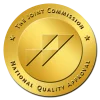THE IMPORTANCE OF IDENTIFYING MENTAL HEALTH DISORDERS AMONG CHILDREN AND TREATING THEM
The first week of February is Children’s Mental Health Awareness Week. In 2021, it comes at an incredibly important period. The country is coming up on marking one year of life during a pandemic, which has upended the lives of millions of people.
And those paying the greatest price? Children who haven’t seen a regular school day – or week, for that matter – in months. They have been forced to figure out a new way of life without play dates or sports or even family outings regularly. Many are doing all of this without face-to-face support from members of their extended family, including grandparents, who may be keeping their distance for fear of the coronavirus.
So children, and their parents, are having to figure out ways to cope as the pandemic continues to evolve in this country. They’re managing different schedules and new expectations all while continuing to try to keep things “normal.”
Even before the pandemic, about 15 million young people in the United States can currently be diagnosed with a mental health disorder, according to the American Psychological Association.
It’s especially important to treat mental health disorders when identified in children to help prevent difficult, lengthy and complicated treatment as adults. Instead of unraveling years of problem behavior – in school or in the professional world – or maneuvering through addiction or self-harm among adult patients, mental health professionals have tools to help young people to cope with or work through difficult emotions, trauma and the related responses.
As the pandemic has meant fewer in-person school days and much more isolation, young people also have fewer interactions with adults who may be able to find early indications of problem behavior that could be indicative of anxiety or obsessive compulsive disorder. Parents should be on the lookout for warning signs that a young person could be suffering from mental illness that include a variety of symptoms, such as withdrawing from others, self-harm, extreme irritability and difficulty sleeping.
Young people can be diagnosed by medical professionals by evaluating a number of factors, including a medical examination, a review of their developmental progress or with standardized assessments. Treatment can take a variety of forms, ranging from talk therapy to medication.
During the pandemic, families can take a number of steps to create a safe, open environment so that children, if they are upset, can communicate their feelings. Those include keeping up a regular routine, spending time together and being a good role model.
The mental health professionals at Willow Creek Behavioral Health are here to help. They treat individuals who experience mental health challenges, like trauma, grief, depression, anxiety, self-harm, and suicidal thoughts and behaviors. Call us 24/7 at (888) 464-1498 or toll free at (844) 308-5050.







